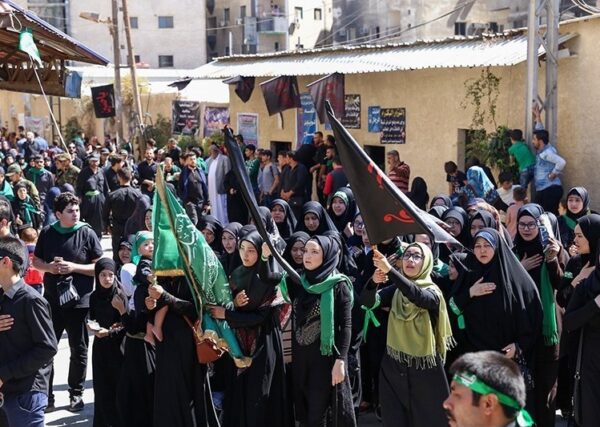Across the Shia world, streets and businesses were closed as observance of Ashura began last Tuesday, July 16. The holiday, whose name means “ten” in Aramaic to denote its mark on the tenth day of the Islamic calendar month, Muharram, takes a more somber tone than other festivities as a day of commemoration. Ashura has a significant status in Islam, but it is particularly important to the Shia faith, one of the religion’s two major branches alongside Sunnism. Read about the origins of the holiday, its importance to Shia beliefs, and how communities celebrate the holiday around the world.

What is the Origin and Significance of Ashura in Sunni Islam?
Ashura marks a uniquely significant day in the Islamic calendar. In the Old Testament, it was the day that the prophet Moses parted the Red Sea, Noah disembarked from his ark, and God forgave Adam’s original sin. This religious auspiciousness is the reason why many Sunnis celebrate on this day. Commemoration, often in the form of special prayers and optional fasting, is meant as a praise of God’s miracles and forgiveness.
What is the Significance of Ashura to Shia Muslims?
While for Sunni Muslims, Ashura is a day of celebration to revel in godly miracles, it is a day of mourning of Shias. Shiism remembers this date as the tragedy of the massacre of Imam Hussein ibn Ali in 680 CE.
His death occurred at the Battle of Karbala, memorialized by Shias as the most horrific moment in Islamic history. As they approached the city of Karbala in modern Iraq on a journey to Kufah to meet with supporters, Hussein and a small group of his followers were confronted by an army of the Caliph of the Umayyad empire, Yazid ibn Mu’awiya. Facing overwhelming numbers, nearly the entire group was killed, including Hussein and much of his family.
For Shia communities, the Battle of Karbala was the ultimate devastation. In fact, Karbala is now eternalized as a shrine of Shia Islam, who believe that the leadership of the Muslim world should come from Prophet Mohammand’s direct bloodline; Imam Hussein was the grandson of the Prophet.
How Is Ashura Observed?
Across the Shia world, such as southern Lebanon, parts of Iraq, Syria, and Iran, many practice rituals that mourn the events at the battle. Mosques host special religious sermons and prayers that commemorate the tragedy. Processions and marches also take place, in which thousands of Shia come to gather and mourn, many wearing black. “Passion plays” reenact the murder of Hussein; in Iran, this is called “ta’ziyeh.” These reenactments seek to demonstrate the story of sacrifice and pursuit of justice Hussein’s story represents in Shia beliefs.
Controversially, some Shia communities partake in a form of self-flagellation, known as “tatbir,” in which men will inflict harm upon themselves, such as beating their chests. This is a gesture that, like other Ashura traditions, seeks to symbolically replicate the anguish Hussein endured for the sake of Shia Muslimes. However, many Shia scholars have denounced the practice.
Further Reading

